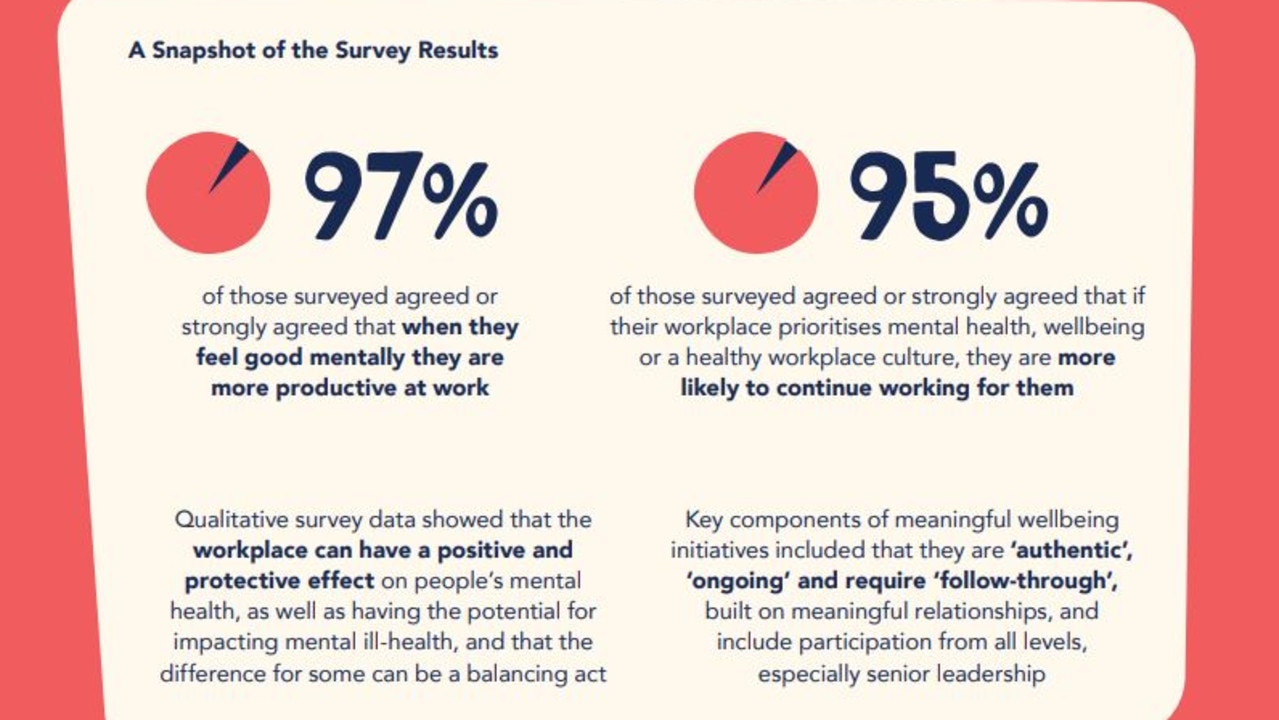Young Australians call out ‘tokenistic’ workplace trend
It’s something workers have to continually put up with, and now young Aussies are pushing back at a disappointing trend that’s running rampant at work.

Young Aussies are pushing back on a disappointing workplace trend that employees have had to continually put up with.
Gen Z and Millennial workers have had enough with half-hearted mental health initiatives in place across a multitude of Australian companies, branding them nothing more than “superficial box-ticking”.
A new report based on a qualitative survey and released by youth mental health charity batyr found that 95 per cent of young people strongly agree that if their workplace priotises mental health and a healthy culture then they are more likely to continue working for them.
The mental health charity claims the report is further proof of a growing shift in attitudes towards work in Australia, with trends like “quiet quitting” also showing younger workers want more work-life balance and to take care of their mental health.
Worryingly, the report found just 38 per cent of people said they would seek help from support services offered by their employer, such as the Employee Assistance Program, if they were having a personal or emotional problem.

Just under half of respondents said their workplaces hadn’t successfully implemented new activities or strategies that support mental health or wellbeing in past 18 months.
A higher number of people – 69 per cent – said they would feel confident having a conversation with a trusted colleague about their mental health.
Nic Brown, CEO of batyr, said there are critical environments that impact the health of young people, with the workplace being one of them.
“This report reveals that there is still a lot of work to be done to ensure mental health support is embedded into workplace culture and practice,” he said.
A massive 72 per cent of respondents said they could tell if a staff wellbeing initiative was “tokenistic”, as opposed to a meaningful action.
When asked what makes an initiative “tokenistic”, employees said they were “one off events” that are “short term” and “superficial”.
An example would be a mental health-related email with no follow up discussion, policies that are “never actioned” or plans that are never implemented.
Systematic issues such as increasing workloads are not properly addressed, with employers instead recommending actions that are “not compatible with the requirements of the job”.

They are just used by the company as a “box tick” and are often part of some “hidden agenda”, according to the survey responses.
Staff members often feel as if these actions lack genuine compassion from their employer and are not done in the true interest of employees.
A critical part of creating a workplace that supports the mental health of its employees is strong relationships between staff and their managers.
One respondent said: “I spoke with my manager previously about challenges with my mental health and went very much unheard. I am now exploring alternative employment.”
On the flip side, meaningful staff wellbeing initiatives are “authentic” and show “genuine care” for employees.
These actions take time and resources, are consistent and available to everyone.
They involve things like regular mental health check-ins built on meaningful relationships and require senior people to lead by example and show “vulnerability and openness from the top down”.
Mr Brown said young people are “burnt out” after Covid and repeated lockdowns, with many finding it increasingly difficult to find work.
“Knowing that a workplace prioritises mental health is a key incentive for young people to rejoin the workforce, and to stay engaged once landing a position,” he said.
“The report also reveals that young people are increasingly wanting their managers to demonstrate their own mental health challenges; as a way to build trust, create genuine care for their staff, and make mental health initiatives in the workplace a success.”
Originally published as Young Australians call out ‘tokenistic’ workplace trend





